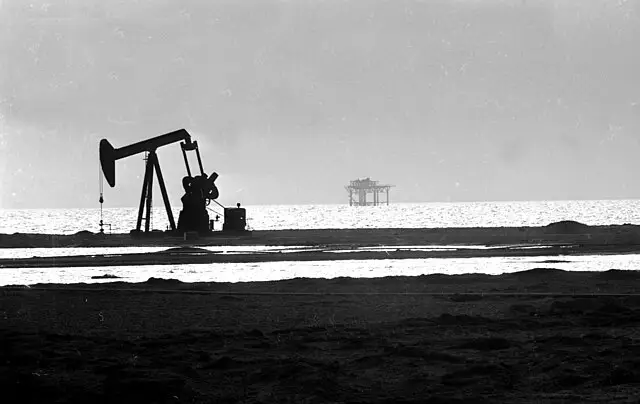UAE-based Indian national, his 4 firms sanctioned by US over alleged involvement in Iran’s oil trade

UAE-Based Indian Businessman and Firms Sanctioned by US for Iran Oil Trade Links
In a serious diplomatic move, the United States has sanctioned an Indian national based in the UAE along with four of his firms. The U.S. Treasury accuses them of illegally trading Iranian oil and helping Iran bypass sanctions.
Who Is the Man Behind the Sanctions?
The businessman, who resides in the United Arab Emirates, allegedly operated a network of companies that helped Iran export oil. His name was listed in the official U.S. Treasury announcement, though he was not widely known before this.
According to U.S. authorities, he used front companies to hide the origin of the oil. These businesses helped carry out ship-to-ship transfers, forged documents, and rebranded Iranian oil to make it appear legitimate.
Companies Named in the Action
The U.S. has named four Dubai-based companies in the sanctions. Each of them reportedly played a role in moving Iranian crude or petroleum products to international buyers.
These firms claimed to deal in energy trading and logistics. However, U.S. investigators say they disguised the true source of the oil and sent profits back to Iranian entities, including the Islamic Revolutionary Guard Corps (IRGC).
What the U.S. Treasury Said
In a strong statement, the Office of Foreign Assets Control (OFAC) explained the reasons behind the sanctions:
“This action targets a UAE-based individual and his companies that have facilitated the sale of Iranian oil to foreign markets, directly supporting Iran’s illicit financial streams.”
Brian E. Nelson, Treasury Under Secretary for Terrorism and Financial Intelligence, said the move is part of a broader effort. The U.S. wants to stop Iran from using oil money to support regional conflicts and terrorism.
What Sanctions Mean
These sanctions freeze all U.S.-linked assets of the named businessman and his companies. U.S. businesses and individuals can no longer deal with them. The U.S. also warned that foreign banks and companies may face consequences if they help the sanctioned entities.
This move could severely damage the firms’ operations. Many of them rely on global banks and shipping networks, which are likely to cut ties to avoid legal risks.
Why the U.S. Targets Iran’s Oil Trade
The U.S. reimposed oil-related sanctions on Iran in 2018, after leaving the Iran nuclear deal (JCPOA). These measures aim to prevent Iran from funding its nuclear program and activities across the Middle East.
Iran has often denied these allegations. It says the U.S. is using sanctions as a political weapon and insists that its oil exports are legal.
Still, Washington continues to pursue violators through intelligence and financial monitoring. The latest action shows how the U.S. tracks and disrupts oil deals that support Iran’s sanctioned regime.
Implications for India and the UAE
While the sanctions don’t directly involve the Indian government, they could affect diplomatic relations. India once bought large amounts of Iranian oil. But under U.S. pressure, it stopped those imports in 2019.
Now, Indian citizens doing business abroad — especially in places like Dubai — could face greater scrutiny. This case shows that Indian nationals can face serious consequences for breaking international rules, even outside India.
The UAE also finds itself under the spotlight. It is a U.S. ally and a key global trade hub. Yet, cases like this put pressure on Emirati officials to crack down on illegal business activity within their borders.
Wider Global Impact
This move sends a strong message to anyone helping Iran evade sanctions. It shows that the U.S. can act against individuals and companies, no matter where they operate from.
Experts say other regions, such as Southeast Asia and East Africa, might also be under the scanner. Similar oil-smuggling operations have reportedly taken place in those areas as well.
By targeting networks and middlemen, the U.S. hopes to make it harder for Iran to profit from its oil exports. The effort also aims to reduce funding for Iran’s allies and proxies in countries like Syria, Lebanon, and Yemen.
Conclusion
The U.S. sanctions on the UAE-based Indian businessman and his four companies highlight Washington’s serious approach to enforcing oil trade restrictions on Iran. This action underscores how deeply interconnected global trade and politics have become.
For Indian entrepreneurs abroad, this is a wake-up call. Following international rules isn’t optional. For the global oil market, the crackdown could limit Iran’s ability to sell crude, tighten supplies, and even affect prices.






